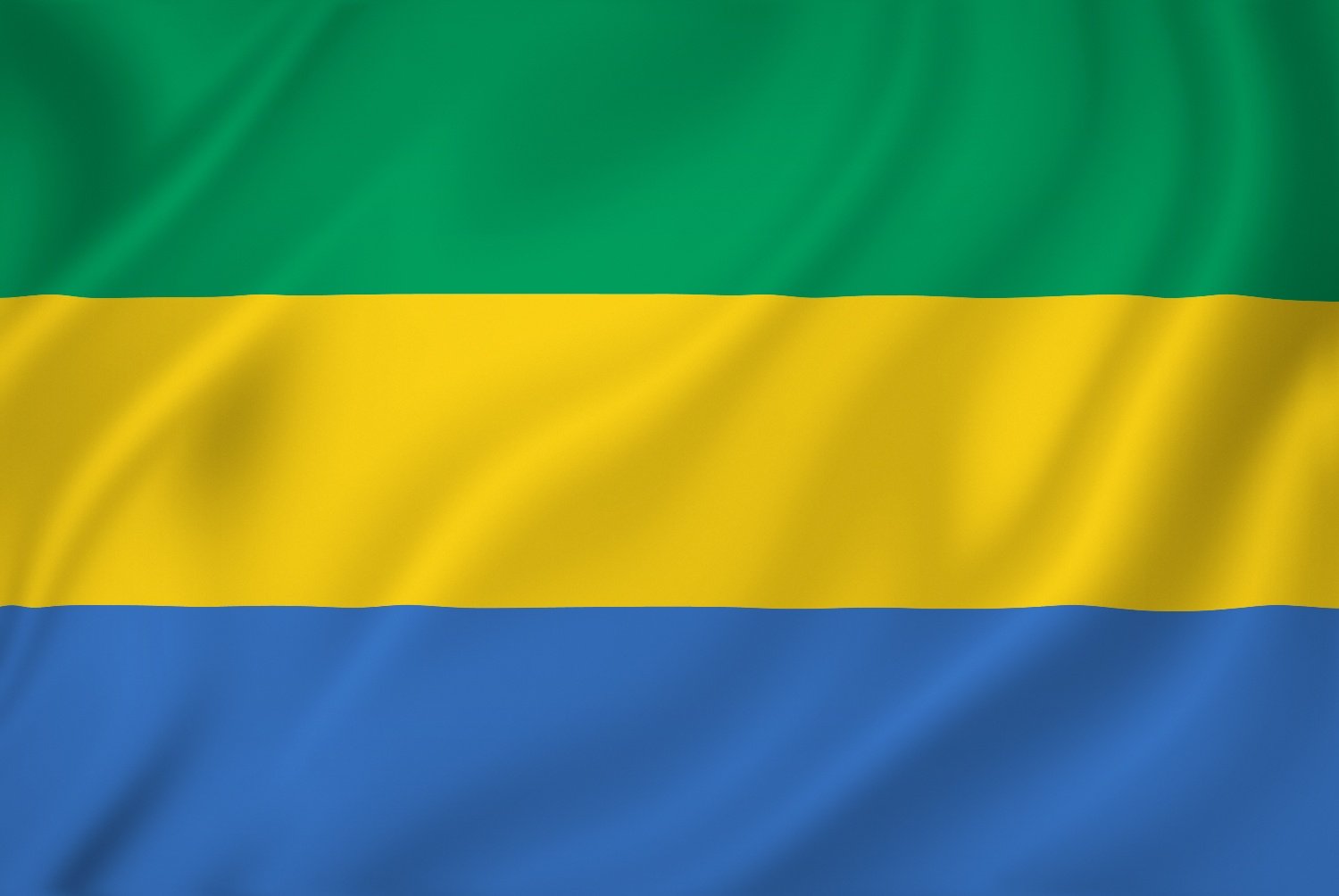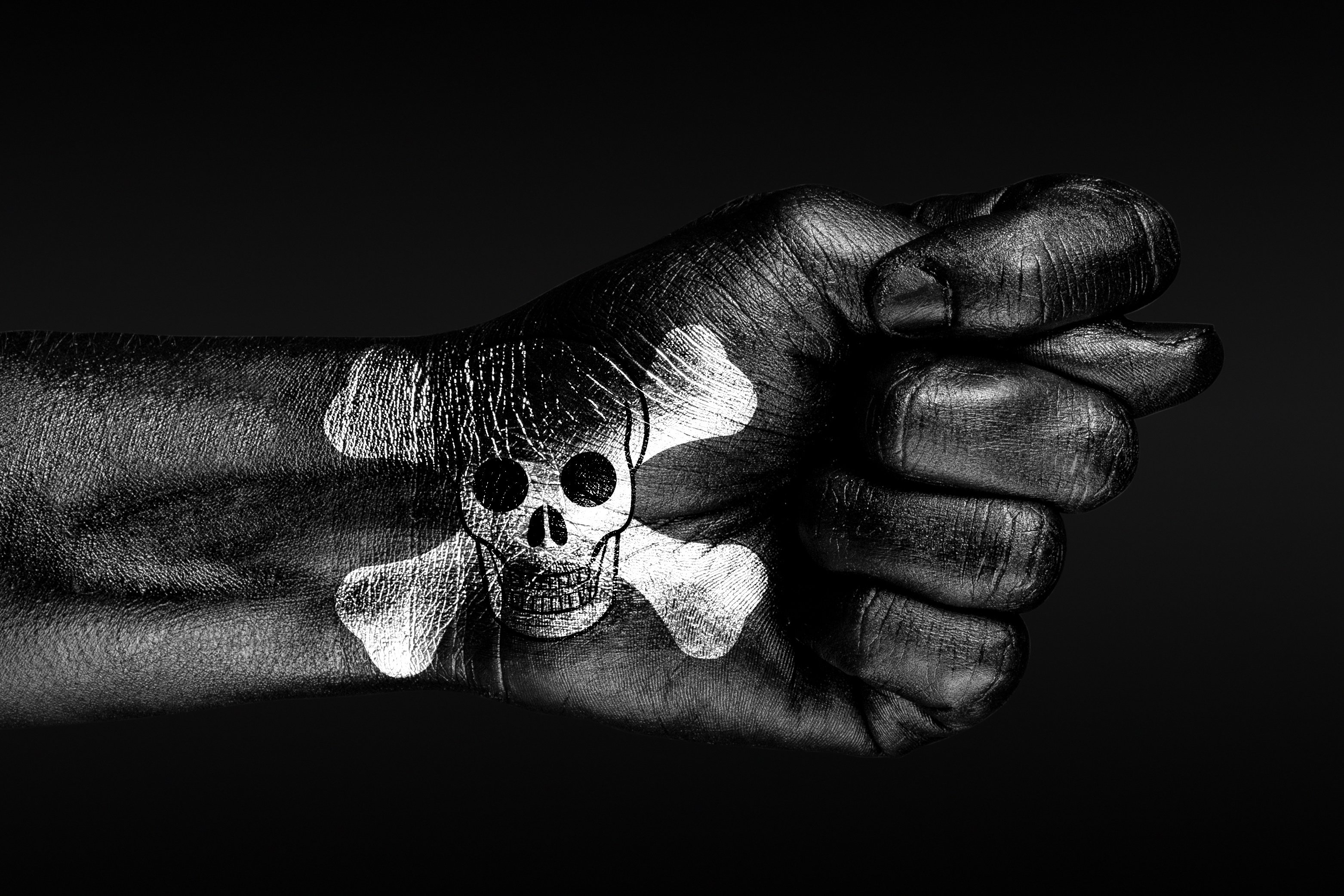
Gulf of Guinea Counter - Piracy
Nigeria and counter piracy
The success of regional frameworks to tackle piracy is of paramount importance.
Nigeria is leading the way in terms of its counter-piracy efforts.
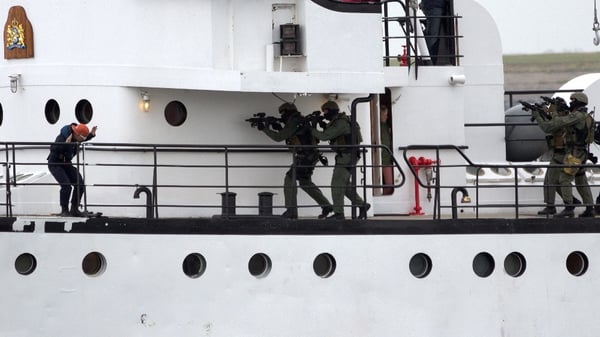
- Since 2010, the United States conducts an annual "Obangame Express" exercise to improve the capabilities of West African states to combat illegal activities at sea.
- 2011 and 2012, the United Nations Security Council passes two resolutions that paved the way for more regional cooperation to protect ships and deal with piracy in the Gulf of Guinea
- 2013, regional multilateral bodies—the Economic Community of West African States, the Economic Community of Central African States, and the Gulf of Guinea Commission, with support from the International Maritime Organization—cooperatively developed an agreement known as the Yaounde Code of Conduct.
- 2013 G7++ Group of Friends of the Gulf of Guinea
- 2016, the European Union launched its Gulf of Guinea Inter-regional Network.
- In 2019, the Suppression of Piracy and Other Maritime Offences Act came into law allowing authorities legal jurisdiction to prosecute pirates and maritime criminals.
- (Link to blog post about first pirates being prosecuted in Nigeria)
Aligning these efforts with political and economic reforms onshore in individual West African countries is needed to feel the impact of these anti piracy measures. Anti-corruption measures, economic development in the Niger Delta and increased accountability for state security forces is needed urgently in Nigeria. Solely focusing on prosecuting maritime criminals and compensating companies for stolen assets, papers over the cracks that need addressing urgently: the socio-economic issues and grievances driving piracy in the Niger Delta.
Neighbouring States and counter piracy
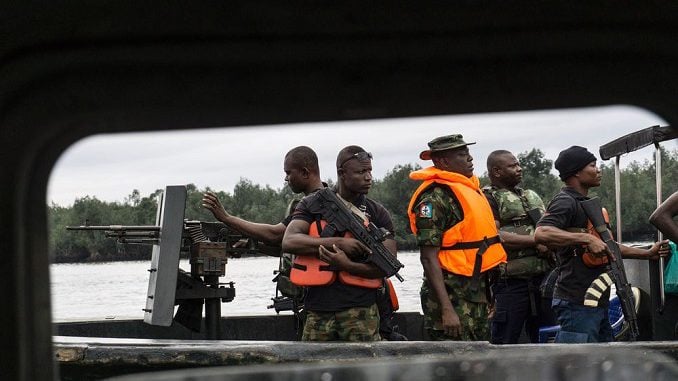
The success of Nigeria’s counter piracy operations depend on both itself, a country gripped by democratic failings and riddled with internal corruption and the cooperation of neighbouring states. If regional cooperation against piracy falters the long-term safety and development of countries along the West African coast will face an extremely uncertain future.
IMO has been involved in technical cooperation projects relating to maritime domain awareness in the West and Central Africa region for many years and established a regional presence in West Africa in 1999. IMO currently has two regional coordinators based in Côte d'Ivoire, within the premises of the Ministry of Transport in Abidjan, for west and central Africa Francophone, and in Ghana, within the UNDP offices in Accra, for west and central Africa Anglophone. Read more about West and Central Africa Regional Agreements and Information Sharing.
Countries such as Cameroon, Guinea and Gabon are unlikely to invest in counter-piracy efforts and lack the capability to counter the piracy problem in their offshore waters. Countries in the region lack the knowledge, training and resources to deal with the situation. When an incident takes place within the territorial waters of a state, it is called armed robbery. When that same incident takes place outside the territorial waters of a state, it is called piracy, and any navy or any response agency can respond to that incident. According to the 1982 UN Convention on the Law of the Sea, the 12-mile zone (one nautical mile is about 1.85 kilometres) is part of the national territory. The responsibility to deal with a situation within the territorial state lies with that state only.
Cooperation between states is made more difficult by bureaucracy. Security forces are not allowed to travel from one territory to another to pursue pirates without informing the neighboring country. Until effective bureaucratic processes and law enforcement is agreed, the waters will continue to be a playground for criminals.
Benin
The General Director of the Port Autonome of Cotonou, Port Authority, informs maritime agents, shipping agents, stevedores and shipowners that the following measures are taken to strengthen the protection of ships calling at the port of Cotonou against acts of piracy:
- Any vessel having to stay at anchorage and calling at the port of Cotonou must have a maritime agent
- The maritime agent must announce the call of any vessel at least 48 hours prior to her arrival at the anchorage
- A vessel whose maritime agent has not previously completed the berthing formalities before her arrival at the anchorage will not be authorized to drop anchor, except in cases of force majeure and express authorization of the Harbour Master.
- At least two (02) hours before arriving at the approach buoy, any ship arriving at the port of Cotonou must call the control tower at the Harbour Master’s office in order to communicate information regarding her call, in particular the name of her maritime agent and the reason for her call (commercial operations, etc.)
- In the case where the berth is occupied:
(5a) The Harbour Master will, depending on availability, allocate a lay-by berth for a vessel. The vessel must berth at this berth, otherwise it will not be authorized to anchor at the anchorage.
(5b) If a lay-by berth is not available, the Naval Forces Semaphore (Cotonou Signal Station) will assign an anchorage position to the ship and an armed guard will board the ship prior her anchorage. - The boarding of the armed Guard is compulsory and is free of charge for any ship staying at the anchorage at the port of Cotonou.
- In the event that the Master refuses the boarding of the armed guard the vessel will not be authorized to anchor; he will give his information to the control tower and will return at sea outside Benin Territorial Waters.
- Only vessels having operations to be carried out at the Port of Cotonou are authorized to anchor at Cotonou anchorage and to embark an armed guard from the Beninese Naval Forces.
- Any vessel having completed her commercial operations and which has left port must sail for her next destination except in cases of force majeure and the express authorization of the Harbour Master.
- The payment of all taxes resulting from the call of any ship is compulsory as per the Operating and Police Regulations and the other rules of the Port of Cotonou Authority
Benin Incidents

Cameroon
Cameroon Incidents
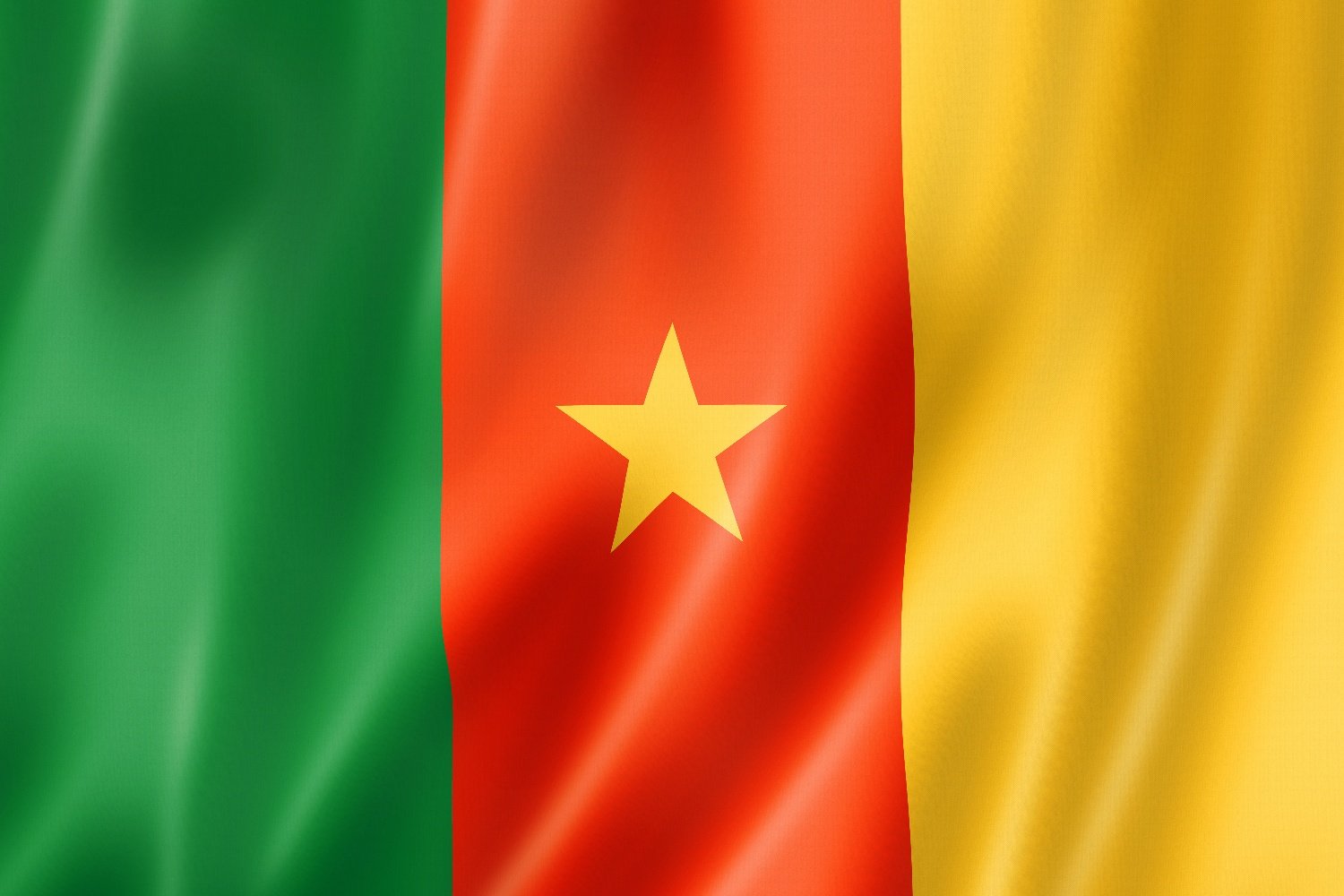
Cameroon is a leading producer of crude oil and is developing its production of natural gas. 90% of production originates from offshore fields in the Rio del Rey basin. Total daily oil production averaged 100 000 barrels in 2015. Cameroon hosts a pipeline that transports oil production from Chad to its port in Kribi.
In an effort to enhance the security for ships calling at Douala Port, the Government of Cameroon has decided to place armed security teams onboard all vessels for the duration of their stay at Douala anchorage (pilot station). The following announcement was made by the Douala Port Authority on 22 August 2019:
- Shipowners and shipping agents of vessels calling at Douala Port are hereby informed that in view of giving more security to vessels, it has been decided that each vessel at anchorage at Base Buoy (B9) will be provided by an armed security team for their protection.
- The team will remain onboard the vessel throughout her stay at anchorage and will leave after berthing
- This operation will be free of charge and will be conducted for an infinite period.
The arrangement reduces the administrative delays incurred when completing an application for government armed guards on board. In the past, the presence of armed guards on board had to be authorized by the Ministry of Defence and the Presidency of the Republic. Vessels requiring the presence of armed guards on board were obliged to authorise their agent to complete the formalities. The process was slow and vessels rarely had the time to complete the process.
While reports from previous years show that most attacks occur outside Cameroon waters, the IMB Piracy Reporting Centre recorded three cases of piracy at Douala anchorage in 2019, all involving the abduction of crew members.
Gabon
Between January and June 2020 there have been 4 kidnapping incidents off Gabon. This represents a significant increase in activity. Within the same time period in 2019 there were no incidents reported in this location.
